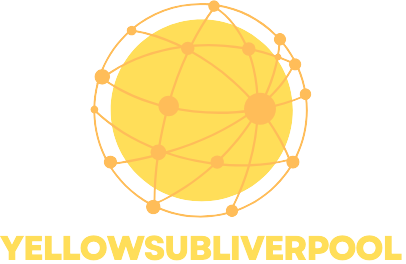Table of Contents
ToggleIn a world where everyone’s hustling harder than a caffeinated squirrel, hustle peer pressure has become the new norm. It’s like a never-ending race where the finish line keeps moving further away. People scroll through social media and see their friends crushing goals, launching businesses, and living their best lives—while they’re just trying to figure out what to make for dinner.
Understanding Hustle Peer Pressure
Hustle peer pressure reflects a societal expectation to perpetually strive for success. It thrives in environments where achievement is constantly compared via platforms like social media.
Definition of Hustle Peer Pressure
Hustle peer pressure describes the social phenomenon where individuals feel compelled to outwork their peers. This pressure often stems from observing others’ accomplishments on various platforms, creating a sense of urgency to exceed expectations. Individuals may experience anxiety and low self-esteem when they perceive themselves as less productive. This relentless drive towards achievement impacts mental health, often resulting in burnout.
Historical Context and Origins
Hustle culture traces its roots to the early 20th century with the rise of industrialization. The idea that hard work equates to success became ingrained in societal values. In recent decades, technology and globalization fueled intense competition among individuals in the workforce. As access to real-time achievements increased through digital platforms, societal pressure intensified. Historically, these factors contributed to a culture that idolizes constant productivity as a hallmark of personal worth.
The Impact of Hustle Peer Pressure
Hustle peer pressure significantly affects mental and social dynamics. Individuals often face heightened anxiety and low self-esteem while striving to meet external expectations.
Mental Health Effects
Anxiety emerges as a primary consequence of hustle peer pressure. Individuals frequently experience overwhelming feelings when they compare their achievements to their peers. Depression can develop when constant comparison leads to feelings of inadequacy. Stress levels rise due to the relentless pursuit of success in a competitive environment. Emotional exhaustion also becomes common as individuals push themselves to meet unrealistic standards. Increased burnout rates reflect the toll that hustle culture takes on mental well-being.
Social Dynamics and Relationships
Hustle peer pressure disrupts personal relationships. Competition can overshadow genuine connections, as individuals prioritize work over social interaction. Trust issues may arise when one perceives their friends as rivals rather than supporters. Communication often suffers due to preoccupation with productivity. Societal expectations create a culture of isolation, where individuals feel they can’t share struggles or setbacks. Connections with family may weaken when one prioritizes career goals above relational needs.
Coping Mechanisms
Coping with hustle peer pressure requires strategic approaches. These methods help individuals maintain mental well-being while navigating societal expectations.
Building Resilience
Resilience enables individuals to withstand pressures related to hustle culture. Developing a growth mindset fosters adaptability, making it easier to face challenges. Engaging in mindfulness practices reduces stress and enhances emotional regulation. Recognizing personal accomplishments, no matter how small, reinforces self-worth. Seeking support from trusted peers creates a sense of community, alleviating feelings of isolation. Creating goals based on personal values emphasizes intrinsic motivation over external comparisons. Embracing self-compassion allows individuals to forgive themselves for perceived shortcomings and focus on personal progress.
Setting Personal Boundaries
Establishing personal boundaries protects mental health from hustle-induced stress. Defining specific work hours ensures time for relaxation and self-care. Declining invitations for additional projects prioritizes individual well-being over external expectations. Communicating limits to colleagues helps manage workload effectively. Allowing time for hobbies cultivates fulfillment outside of work responsibilities. Limiting social media use reduces exposure to unrealistic productivity standards. Seeking environments that encourage balanced lifestyles fosters healthier connections with peers. Maintaining boundaries enhances clarity and promotes overall happiness.
Challenging the Hustle Culture
Hustle culture places immense pressure on individuals to continuously achieve. Challenging this narrative requires a shift in how society defines success and personal worth.
Shifting Perspectives on Success
Redefining success creates room for diverse definitions that extend beyond career achievements. Individuals often find fulfillment in personal growth, relationships, and health, which leads to a more holistic view of life. Celebrating small wins lowers anxiety levels, allowing people to appreciate progress at their own pace. Communities that value varied achievements foster inclusivity, reducing the stigma around perceived failure. This shift encourages individuals to refrain from relentless comparisons, promoting a healthier self-image.
Promoting Balance and Well-being
Prioritizing work-life balance plays a crucial role in combating hustle peer pressure. Individuals can set boundaries by designating specific work hours, ensuring personal time remains sacred. Engaging in mindfulness activities cultivates mental resilience, fostering a sense of calm in a competitive environment. Social media limits create opportunities for people to disconnect, helping to reduce feelings of inadequacy. By focusing on well-being, he or she can nurture supportive relationships and develop a strong sense of self, transitioning from the hustle mindset to one of balance and fulfillment.
Hustle peer pressure is a pervasive force in today’s society that undermines mental health and personal relationships. The constant comparison fueled by social media creates a toxic environment where individuals feel compelled to chase unrealistic standards of success. By recognizing the detrimental effects of this culture, individuals can take proactive steps to redefine their personal definitions of success.
Embracing a more balanced approach to productivity allows for a healthier mindset. Prioritizing personal growth and well-being over relentless competition fosters authentic connections and nurtures resilience. As society shifts towards valuing diverse achievements, individuals can find fulfillment in their unique journeys, ultimately breaking free from the constraints of hustle culture.







